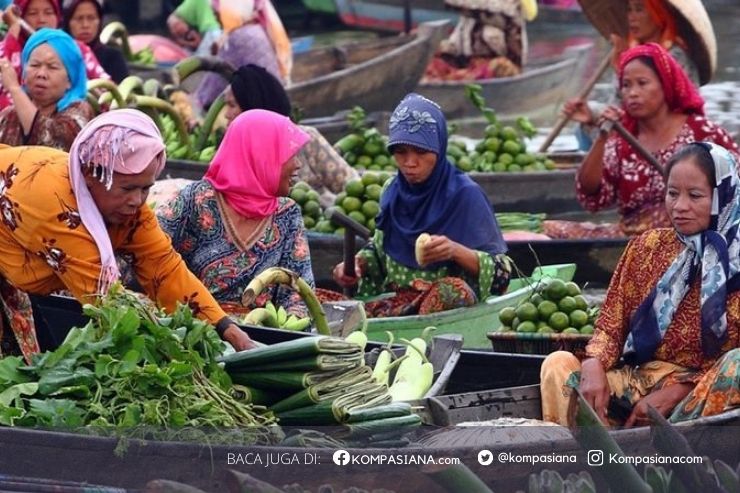Criminalization of Roy Suryo, Rismon, and Tifa by Jokowi: A Critical Analysis
The question of whether Roy Suryo, Rismon, and Tifa have been subjected to criminalization by the Jokowi administration necessitates a comprehensive examination of the concept of criminalization itself, alongside an analysis of the specific legal and political contexts surrounding these individuals (Hendrianto, 2020). Criminalization, in its essence, refers to the process by which certain behaviors or actions are defined as crimes and subjected to legal penalties by the state, often reflecting the prevailing social, political, and economic norms. Normative legal research, with a focus on searching ratio legis or legal reasons, using philosophical and conceptual approaches, can elucidate the reasons for criminalization (MH et al., 2020). Criminalization represents a significant intrusion on individual liberties, restricting behavior and threatening punishment for those who transgress defined boundaries (Ali & Hafid, 2022). Socio-legal research can further analyze how a norm is implemented in real life (Kuntadi, 2023). Therefore, any act of criminalization must adhere to the principles of human rights, ensuring that the limitation of rights is proportionate and justified (Ali & Hafid, 2022).
Considering the principle of legal certainty is paramount when evaluating the legitimacy of criminalizing certain actions, particularly those related to policy implementation (Priyatno, 2019). The application of law to perpetrators must align with the constitutional state principles (Situmeang, 2021). In Indonesia, corruption remains a persistent problem, and existing laws, such as Article 37 of Law Number 31 of 1999, have not been fully effective in eradicating it (Wiriadinata, 2015) (Wiriadinata, 2017). The government plays a crucial role in preventing corruption, collusion, and nepotism by promoting transparency and accountability (Mait et al., 2021). Understanding this requires an exploration into their individual cases, the charges levied against them, and the broader socio-political climate in Indonesia under the Jokowi administration, especially considering allegations of political corruption involving people in positions of power, often structured to serve the interests of political parties (Handayani, 2019). The persistent corruption is connected to the criminal law of corruption's objectives, especially since Indonesian corruption laws do not differentiate between discretion and abuse of authority (Tamin & AUTHOR_ID, 2018). In a nation that recognizes the importance of religion, corruption is considered a serious issue that goes beyond domestic crime and affects international security, harming the nation's reputation (Mukhlishin, 2020).
To ascertain whether the actions against Roy Suryo, Rismon, and Tifa constitute political criminalization, it is imperative to investigate whether the charges against them are legitimate or whether they are politically motivated, aimed at stifling dissent or silencing critics of the government. It is important to explore whether ethical breaches in the bureaucracy, such as conflicts of interest, bribery, and abuse of power, contribute to the development of corruption. This involves scrutinizing the legal basis for the charges, the evidence presented against them, and the fairness and impartiality of the legal proceedings. The principle of equality before the law, as enshrined in the Indonesian Constitution, mandates that all citizens be treated equally under the law, without discrimination based on political affiliation or other considerations (Hidayat, 2020). Any deviation from this principle raises concerns about the potential for political manipulation of the legal system. Examining court decisions and related documents, as well as assessing the factual and legal considerations that formed the basis for these judgments, will help determine whether the imposition of sanctions was appropriate.
Additionally, the broader context of freedom of expression and political dissent in Indonesia must be taken into account when assessing these cases. The extent to which individuals are able to express critical opinions of the government without fear of reprisal is a crucial indicator of the health of a democracy. The neutrality and independence of state power are essential for maintaining the quality of Indonesian democracy. Cases where individuals are targeted for expressing dissenting views raise concerns about the erosion of democratic principles and the potential for abuse of power. Corruption, which weakens the foundations of community, state, and nation, is commonly carried out with collusion, conspiracy, and nepotism. Moreover, the lack of public engagement and the weaknesses in system reinforcement can lead to corruption, which emphasizes the need to strengthen bureaucratic ethics. The implication is that public officials should not prioritize personal gain or private interests over public responsibilities.
In conclusion, determining whether Roy Suryo, Rismon, and Tifa have been criminalized by the Jokowi administration necessitates a meticulous examination of the legal and political circumstances surrounding their cases. To properly assess this claim, one must consider several factors, including the possibility that the charges are politically motivated, the fairness of the legal procedures, and the broader climate for free expression and dissent in Indonesia. An examination of the cases against Roy Suryo, Rismon, and Tifa is essential to ascertain whether they are indicative of a pattern of political repression or isolated instances of legitimate law enforcement (Aprianto, 2021). An impartial legal process is essential to a constitutional state. The reality is that many questions about Indonesia's judiciary remain unanswered. There is still a widespread perception that the law can be used to achieve a significant result in economic or political power. Indonesia has a history of human rights abuses that have gone unpunished, including journalists being jailed for alleged violations of defamation laws (Peerenboom et al., 2006). Without thorough investigation and impartial analysis, it is difficult to arrive at a definitive conclusion about the motivations behind these cases and their implications for democracy and the rule of law in Indonesia (Tjoneng, 2020).
References
Ali, M., & Hafid, I. (2022). Kriminalisasi Berbasis Hak Asasi Manusia Dalam Undang-Undang Bidang Lingkungan Hidup. JURNAL USM LAW REVIEW, 5(1), 1. https://doi.org/10.26623/julr.v5i1.4890
Aprianto, A. (2021). STRENGTHENING GLOBAL GOVERNANCE: INDONESIA'S COURT AND THE CENTRAL KALIMANTAN FOREST FIRE CASE. Lampung Journal of International Law, 3(1), 1. https://doi.org/10.25041/lajil.v3i1.2102
Handayani, F. (2019). The Pernicious Consequences Of Political Corruption In Indonesia. Prophetic Law Review, 1(1). https://doi.org/10.20885/plr.vol1.iss1.art1
Hendrianto, S. (2020). Constitutionalized But Not Constitute: The Case of Right to Social Security in Indonesia. Constitutional Review, 6(2), 241. https://doi.org/10.31078/consrev623







